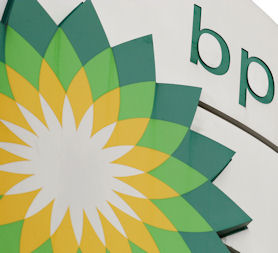BP back in profit despite oil spill costs
 Alex Thomson
Chief Correspondent
Alex Thomson
Chief Correspondent
As BP announces a return to profit despite bearing the costs of the Gulf of Mexico disaster, Chief Correspondent Alex Thomson asks whether it signals an end to the oil giant’s rocky year.

After all the grind, the tragedy of 11 lives lost and then becoming the biggest corporate PR laughing stock since the days of Gerald Ratner and “crap” – well after all that and more, BP is now back into profit.
Only just, I grant you, at £1.1bn, but bear in mind there were times when the oil giant looked ripe for possible hostile takeover or being broken by the blown well at Deepwater Horizon, altogether.
It has already paid out £20bn over the Deepwater Horizon oil spill disaster – a compensation fund alone of £12.9bn. The figures are eye-watering indeed. At the same time BP has taken another big hit over the Deepwater Disaster, announcing today another tranche of £4.8bn to add to the £20bn paid out so far.
‘Track to recovery’
Though all this now compares favourably for BP with the loss of £10.6bn in the previous three months, after profits of £3.1bn for the same period a year earlier. So the bottom line effect of the spill is pretty starkly laid out for you there.
Bob Dudley, the company’s new American Chief Executive, said the results showed that BP was on “track for recovery”.
He added: “We have made good progress during the quarter. This strong operating performance shows the determination of everyone at BP to move the company forward and rebuild confidence after the terrible events of the past six months.”
Special report: BP oil spill
In-depth analysis of BP's Deepwater Horizon disaster, the environmental catastrophe and America's corporate soul searching
Terrible indeed. Those losses being the first this giant company had posted for 18 years.
And it is not simply the bottom line that matters. To some extent higher oil prices will take care of all that. They will boost any oil giant back into the black quickly in the short-term.
But it is the longer term which really matters in the age in which we may well have exhausted all the planet has by way of easily accessible oil. Deep water drilling is pretty much the only way to go. Tar sands and the like will scarcely quench the global thirst for ever more remotely-sourced oil. And BP needs to be in on that. So BP needs a thing called trust and it needs it now and badly.
Deep sea drilling
Trust as well as profits were shattered by what happened in the spring in the Gulf of Mexico.
And trust of course is easily lost and very hard to win back. This is BP’s biggest dilemma as we enter the age of guess what? Yup – deep, deeper and deeper still drilling with all the attendant environmental and safety issues that spring from that process. No going back or backing out for BP. This is the only way the dying oil business is going as we run down our natural supplies of winnable oil.
All BP’s rivals are in the race with their credibility intact in terms of safety and environmental records. BP, either fairly or unfairly, cannot quite lay claim to that and they stand potentially disadvantaged with the market as a result.
Bob Dudley has already scotched rumours that BP would pull out of the US fields altogether and has put in place an extensive safety review and an operational risk unit.
Alongside that goes a new pay review which centres on safety at its core and safety-led initiatives as well as another investigation into how the giant uses third party contractors, so central to the Gulf misery.
And he’s been pretty upfront, telling the CBI only last week that the disaster had “threatened the very existence of the company”.
All in all BP are financially and reputationally now a little distance away from the catastrophic final months of the hapless Tony Hayward.
But are they really out of the woods quite yet? In the brutally cut-throat deepwater competition that is the only way forward for an industry whose days are numbered. There will be fierce debate about quite how numbered. But not about the fact that the beginning of the end is underway.